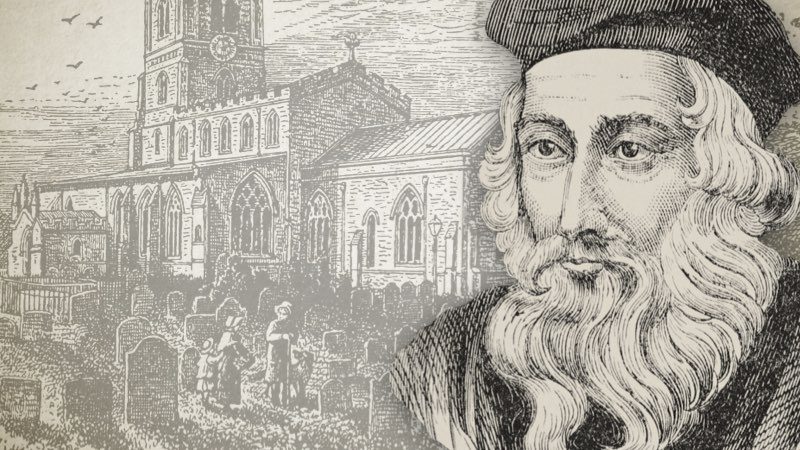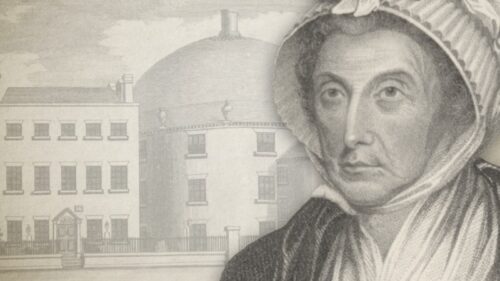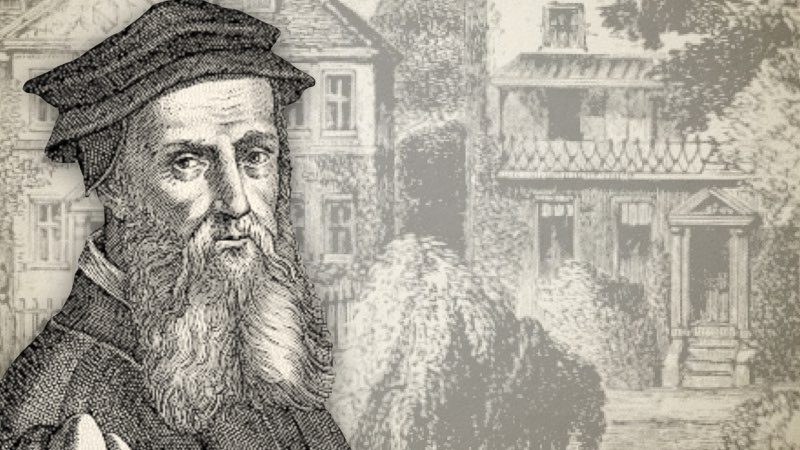George Ella
George M. Ella, born February 1939 in Yorkshire, England, has lived most of his life on the European Continent. He is a retired Senior Civil Servant formerly employed in teaching, post-graduate teacher-training, chairing examination boards and curricula work. He holds degrees from London, Hull, Uppsala, Essen, Duisburg and Marburg universities with doctorates in English Literature and Theology. Dr. Ella has written regularly since the seventies for a number of magazines and newspapers and published numerous books on Church History, including biographies of William Cowper, William Huntington, James Hervey, John Gill, Augustus Montague Toplady, Isaac McCoy and Henry Bullinger besides works on doctrine and education. He is currently finishing the third volume of his series 'Mountain Movers'; a biography of John Durie; a work on Law and Gospel and further study material for the Martin Bucer Seminar. Dr. Ella is still internationally active as a lecturer and is a Vice-President of the Protestant Reformation Society. He is keenly interested in missionary work and has written on the spread of the Gospel amongst the Same people of Lapland, the people of India and the Native Americans. This present volume follows Dr. Ella's 'The Covenant of Grace and Christian Baptism', also published by the Martin Bucer Seminar. George Ella is married to Erika Ella, nee Fleischman, a former government administrator, and they have two sons Mark (41), Director of a Polytechnic College in Bremerhaven and Robin (39), Leading Senior Physician in a newly-built Geriatric and Psychiatric clinic in Dessau.
George Ella on Doctrinal Matters
George Ella's Biographical Sketches
-
The Life And Ministry Of John Wycliffe
John Wycliffe is rightly called the Morning Star of the Reformation. In God’s Providence, he was the man who inherited the apostolic gospel of salvation in Christ as described in the doctrines of grace. He was elected by God to build on the work of Englishmen such as Greathead and Bradwardine and pass it on to Continental men of God such as John Hus, Jerome of Prague and Martin Luther. Besides this, he laid the exegetical and spiritual foundation for the British Reformation. Indeed, one can say that, in God’s good plan for the sixteenth century Reformation of the Church, all roads lead to the life and works of John Wycliffe. As Wycliffe was more thorough-going than many of his reforming successors, it will benefit…
-
Counterfeit Gospels: God’s Multiple Wills
Many free-willers and duty-faith people who call themselves ‘Calvinists’ speak of two different wills in God which they call His secret and revealed wills. These two sides of God, they believe, run parallel to each other and never the twain shall meet in this life. They tell us that this paradox or seemingly self-contradiction in God will be explained in glory. In other words, they refuse to preach the full will of God as revealed in His full gospel and ban it to that area of thought symbolised by the adage ‘Pie in the sky when you die’! Theirs is a half-gospel which is thus no gospel. Maximising and minimising God’s will Such would-be Calvinists tell us that those who reject duty obedience leading to…
-
The Life And Ministry Of Martin Bucer
One of the most important Reformation figures was undoubtedly Martin Bucer who was born in Alsatia in 1491 and died at Cambridge in 1551. His status as Reforming leader is emphasised by the way he was treated after his death. When Mary the Bloody came to power in 1553, she imported a band of Italian thugs under their captain Cardinal Pole to symbolise her own triumph over the Reformation. Pole and his henchmen were given the task of holding a mock heresy trial over Bucer’s grave and then pronouncing him guilty. After going through this shameful sham, they dug up the saint’s remains, tied them to a stake, and piled Bucer’s books around his bones. Then they set the morbid scene on fire. Mary, in…
-
Counterfeit Gospels: Temporary Salvation
Of all the Baptist denominations, I always stood very near the Particular Baptists. It was only recently that it was pointed out to me by my friend Richard Schade of Grand Rapids that, at times, movements had arisen amongst their ranks who believed, like many non-Baptists, that salvation was as short-lived as the will of the ‘saved’ would have it. He called this ‘time salvation’, which was quite a new term to me. I had always believed since my own conversion that salvation must be ‘for keeps’ otherwise it is not salvation. I immediately began to look into this mystery, starting on a helpful book on the subject by an Elder Boaz which I found on the Internet Archive. Boaz wrote at the turn of…
-
John Bale: A Rough And Ready Reformer Against Polished Papacy
We expect great things of those born with silver spoons in their mouths and encouraged from infancy to climb every social, political and cultural ladder. Those born in great poverty and brought up by public institutions rather than in a cosy family background often give cause for concern regarding their future. Yet, in the year 1495, one of the greatest Reformers ever was born into a very large family of poverty-stricken parents and ragged children in the tiny village of Cove in Suffolk. Indeed, John Bale’s parents, Henry and Margaret could not afford any kind of education for their son and he spent his childhood as a farmhand until his parents, despairing of giving John a livelihood, took him to the Carmelite convent at Norwich…
-
Redemption Secured And Applied: As Seen By John Gill
Nowadays many Christians speak of a redemption which Christ accomplished theoretically for all but which worked out practically only for a few. This would seem like a great waste of divine energy – if it were true. Fancy preaching on a redemption accomplished but not applied. What a false gospel that would be! We rarely meet up with Absolute Universalism amongst Evangelicals; that is the idea that Christ has died for all and thus all will be ultimately saved. We do, however, meet up with the teaching that Christ has died for all men everywhere, should they wish to accept it. This belief, once found only amongst Pelagians and Arminians, is an even more questionable dogma than Universalism. The latter still looks to God to…







